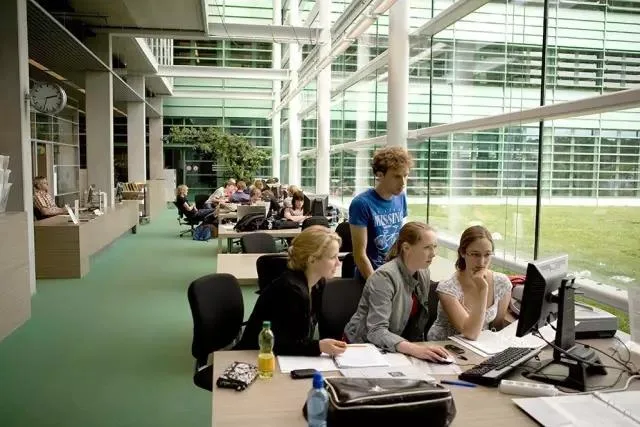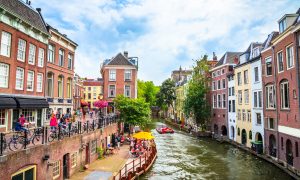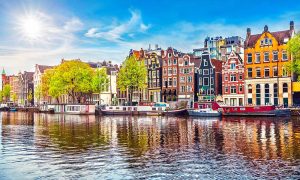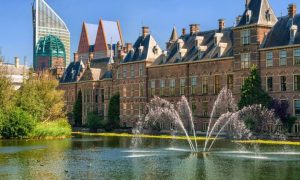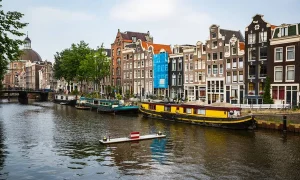In many EuropeanimmigrantsAmong the destinations, the Netherlands, with its open social atmosphere, high-quality educational resources and welcoming attitude towards international talent, is fast becoming the first choice of young people for a "soft landing". Especially for the young generation who intend to "study first, stay later", the Netherlands offers them a relatively clear, stable and operable migration path. From enrollment, to finding a job, to obtaining permanent residence, this article will provide you with a detailed explanation of the path.Exclusive Immigration Pathway for Young PeopleThe
I. WhyStudy in the Netherlands ImmigrationThe golden springboard?
The Netherlands has one of the world's leading higher education systems, and in recent years has been recognized for its large number ofEnglish Taught Undergraduate and Masters Programsattracts students from all over the world. In addition to this, the Dutch government has established the "Seeking a work visa (zoekjaar)"As a bridging transition between study abroad and employment, international students have enough time to look for a job after graduation, thus opening up theskilled migrantPassage.
Strengths Highlights:
-
Tuition fees are reasonable at the study level and range from €8,000 to €15,000 per year at public universities;
-
English is the main language of instruction and no prior knowledge of Dutch is required;
-
You can apply for a one-year job-seeking visa after graduation;
-
The threshold for a work visa is low and the path is clear;
-
You can apply for permanent residence after 5 years of legal residence and naturalization after 8 years.
Second, how to take the immigration path after studying in the Netherlands?
Step 1: Admission to a Dutch university (undergraduate/master's)
Choose a recognized university, such as the University of Amsterdam, Delft University of Technology, Utrecht University, etc. When applying, you can be admitted as long as you meet the language and academic requirements. Dutch education focuses on practice, and specialties such as IT, engineering, business and sustainable development are particularly popular and job-oriented.
Step 2: Apply for a "year of search for work" visa (zoekjaar)
Within one year after graduation, you can apply for a 12-month 'zoekjaar visa' to legally seek work in the Netherlands. You don't need to be sponsored by an employer at this stage, and it is a key window of opportunity for many people to stay in the Netherlands.
Step 3: Get an Employer Offer to switch toskilled migrantcertify
When you find a job, as long as the employer is government-certified "Recognition of sponsoring employers", can be directly converted to "Heightskilled migrantVisa" (Highly Skilled Migrant). This visa:
-
It is not required that you master the Dutch language;
-
Spouses are allowed to move and work together;
-
The 30% tax credit is available;
-
The annual salary threshold is €3,800 - €5,000, depending on age.
Step 4: Apply for permanent residence after five years of legal residence
You can apply for a permanent residence card (permanent residence) as long as you have lived in the Netherlands legally for five consecutive years (half of the years on a student visa count) and you have passed the integration test in Dutch at A2 level.
Third, the popular professions and employment direction suitable for young people
Choosing the right major + popular industry is the key to getting a work visa in the future. Below are the fields where study abroad and employment are highly compatible:
| field | Corresponding field of employment | occupation rate | development potential |
|---|---|---|---|
| Data Science/AI | Fintech, healthcare, logistics | your (honorific) | extremely high |
| Software engineering/computers | IT companies, startups | your (honorific) | extremely high |
| Sustainable construction and engineering | Green energy, environmental design | mid-to-high | your (honorific) |
| International Business/Marketing | E-commerce, brand management | center | mid-to-high |
| Life Sciences/Pharmaceutical R&D | Pharmaceuticals, Scientific Research Institutions | mid-to-high | your (honorific) |
It is recommended to follow the direction of companies hiring through LinkedIn or the school's Career Center in advance to increase internship and project experience.


IV. Integration in the Netherlands: life, language and identity
The Netherlands is aInclusive, liberal and focused on personal independenceThe country is especially friendly to young people. English can cover almost all the needs of daily life, but if there are plans to settle down for the long term, theRecommended to start learning Dutch, both for socializing and for permanent residence and naturalization will help.
-
Cost of living: Amsterdam has a high cost of living, while other cities such as Eindhoven and Groningen are more suitable for students and first-time workers;
-
Student housing is tight and early application is recommended;
-
There are many community events, and joining a student organization or local event will help you integrate quickly.
V. Conclusion: one step at a time, young peopleImmigration to the NetherlandsIt's not a dream.
Immigration to the NetherlandsThe path is not complicated, especially for young people, it provides a "plannable, predictable and achievable" mode of immigration. From the start of study, to work and finally get permanent residence, this route does not require high investment, and does not rely on "connections", but really rely on the strength of the step-by-step out.
If you are eager to start a new life of freedom, diversity and opportunity in Europe.Holland is just one of the best stops to try.
